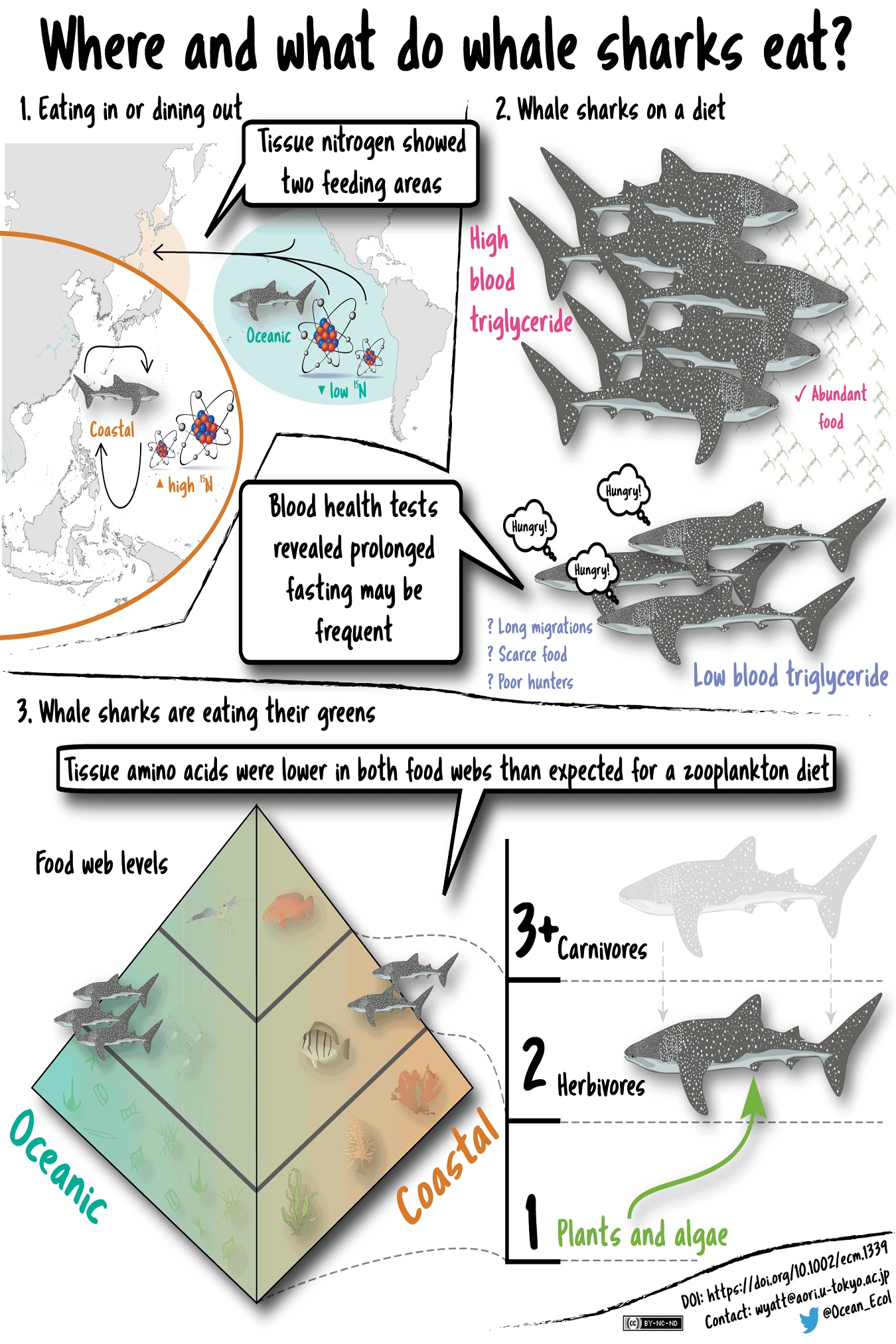Publication: Ocean giant gets a health check : Combination of blood and tissue test reveals whale shark diets
Alex Wyatt and colleagues published a paper in Ecological Monographs, one of the leading ecology journals in the world. Congratulations!
In this study, sophisticated isotopic techniques were used to unveil the mystery of the ecology of whale sharks, the world’s largest fish. Interestingly, the results revealed that all sharks tested showed signs of eating significant amounts of plants and algae, a finding that challenges a common assumption that whale sharks feed strictly on higher levels of the food chain.
See the press release of U.Tokyo for more datail.
https://www.u-tokyo.ac.jp/focus/en/press/z0508_00016.html
This study was supported by JST CREST
Image by K. Sato, Okinawa Churashima Foundation Research Center CC-BY-NC-ND.
Wyatt, A.S.J., R. Matsumoto, Y. Chikaraishi, Y. Miyairi, Y. Yokoyama, K. Sato, N. Ohkouchi, and T. Nagata (2019) Enhancing insights into foraging specialization in the world’s largest fish using a multi-tissue, multi-isotope approach. Ecological Monographs, DOI: 10.1002/ecm.1339

A research team from the University of Tokyo developed a powerful, simple tool to discover the diets, migrations, and conservation needs of whale sharks, the world’s largest fish and an endangered species. Image by Alex Wyatt CC-BY-NC-SA.

